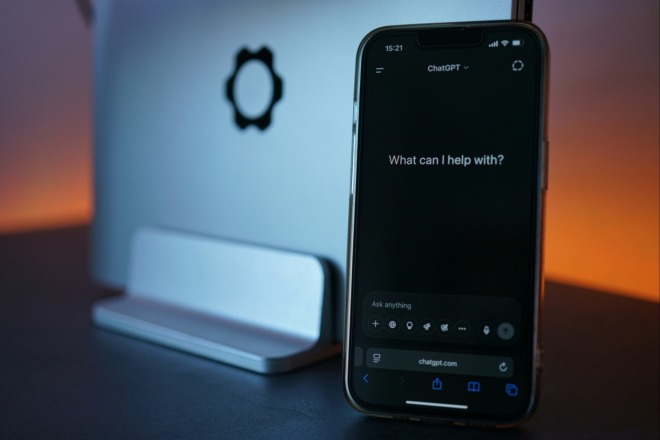If you’re new to SEO (search engine optimization), you must have many questions about how it works. After all, SEO can be a complex topic. In fact, when you first heard about the subject, it most likely sounded too technical and foreign to you. However, if you’re ready to start gaining organic traffic to your website, you need to know SEO. This tactic is crucial for increasing your audience reach and helping others learn more about your business.
Although you may not master this growth tactic in one day, it’s essential you take the time to learn the basics. Once you have a foundational understanding, you can grow your skills in this area and become an expert on the matter. Nevertheless, it’s critical to start with the basics of SEO and learn how it works with the top FAQs.
What Is SEO?
SEO is short for Search Engine Optimization. It’s a process to make your website more visible when people search for something on the internet through search engines like Google. In other words, if you have a shop and want to ensure people find it easily, SEO makes sure of this.
By using this tactic, your website will show up higher in the search results when they search for something related to your offers. This means people are likely to visit your site, increasing organic traffic. SEO involves using keywords that people are likely to use when searching the internet. It also ensures your website is easy to use and has relevant content.
Why Is SEO Important for My Website?
One FAQ about SEO is the importance of it. Many people want to know why they should implement it in their marketing strategy and not skip it. The truth is that SEO is imperative to help people find your business online. Without it, it would be like finding a needle in a haystack with all the websites competing for the top spot on search engines.
Yet, with good SEO, you display your website so everyone using relevant keywords can see it. Thus, your site traffic increases the more it ranks in Google. In fact, the first result has a 27.5% average click-through rate on this search engine.
This means the more visitors you have on your website, the more opportunities you have to turn them into customers. Plus, achieving the first results in Google makes your business appear more trustworthy. This enables you to build credibility and a better reputation in the long run.
How Long Does It Take to See Results from SEO Efforts?
The time it takes to see results from SEO can vary. This is a top SEO FAQ because there’s a common misconception that SEO takes little effort and time. Contrary to what some believe, SEO can take a while before you see results.
Depending on how well you know how to implement it, you can expect to see some changes within six months to a year. However, this timeframe can differ based on several factors.
For instance, if your website is new, it may take longer to show results because it’s still establishing an online presence. The competitiveness of your industry also affects the time it takes — more competition means it can take longer to see results.
Additionally, the amount and quality of SEO work you put into your website plays a crucial role. Regular updates and consistent efforts are key to improving your site’s search engine rankings over time.
What Are Keywords and How Do I Choose Them for SEO?
Keywords are words or phrases people use to search on Google or other search engines. These keywords are useful for users because they help them find answers or products and services they need. Incorporating keywords into your content is essential because they align your website to match people’s searches.
To choose the right keywords, consider what your site is about and what phrases people might use to find it. For example, if you sell handmade candles, good keywords might be “handmade candles,” “scented candles” or “artisan candles.”
You should also consider the competitiveness of a keyword. Some websites may overuse these phrases, making it harder to rank high for them. Using more specific keywords, like “handmade vanilla scented candles,” can be more effective as they have less competition. Plus, they are more targeted to what people may be looking for. You can use tools like Ahrefs or Semrush to gather insights into the keyword competition. This method will help you get better results with less effort.
What Is On-Page and Off–Page SEO?
On-page SEO is the process used on your website to improve its rankings. This includes optimizing your website content, ensuring your pages have good titles, and using the right keywords. It also involves creating high-quality, relevant information. At the same time, it provides your website with a good structure, loads quickly, and is easy to navigate. Basically, on-page SEO is about making your website as user-friendly and informative as possible.
Off-page SEO involves the actions taken outside your website to impact your rankings. This mainly includes building backlinks, which are links from other websites to yours. These links act like votes of confidence, telling search engines that other sites find your content valuable and relevant. Off-page SEO also includes social media marketing and guest blogging. The idea is to increase your site’s authority and credibility, which search engines highly value.
How Can I Measure the Effectiveness of My SEO Efforts?
Measuring your SEO efforts involves looking at various metrics. These metrics will tell you if your website is performing optimally. Here are a few key ways to do this:
- Traffic: One of the main goals of SEO is to increase the number of visitors to your site. Tools like Google Analytics can show you how much traffic you’re gaining and where it’s coming from. An increase in traffic — especially from organic search — is a good indicator your SEO is working.
- Search engine rankings: Monitor where your website appears in search engine results for your targeted keywords. Moving up in these rankings is a clear sign of success.
- Engagement metrics: Look at how visitors interact with your site. Metrics like the average time spent on the site, bounce rate and pages per session can tell you if visitors find your content relevant.
- Conversion rate: If your goal is to sell products or gain email subscribers, tracking conversions is crucial. A higher conversion rate can indicate effective SEO.
- Backlinks: The number and quality of backlinks to your site can be a measure of its authority and relevance. Tools like Moz can help you track your backlink profile.
Keep in mind that SEO is an ongoing process. It’s a long-term strategy you should monitor over time to get a clear picture of your success. Regularly reviewing and analyzing these metrics will help you understand what’s working and needs improvement.
Should I Use Organic SEO or Paid Search?
Another SEO FAQ that people want to know the answer to is whether they should use organic SEO or paid search. Deciding between organic SEO and paid search depends on your goals, budget, and how quickly you want to see results.
Organic SEO naturally improves your website’s ranking in search results over time. While it requires more effort, it’s a cost-effective approach in the long run. Plus, it helps build credibility and trust with your audience. However, it takes time to see results.
Paid search is where you pay to have your website appear at the top of search results for specific keywords. It provides immediate visibility and can be useful for new websites or targeting competitive keywords. You can control your budget and easily track ROI. Yet, once you stop paying, your visibility in these paid spots disappears.
In many cases, a combination of both strategies works best. Use organic SEO to build a strong, lasting online presence and paid search to boost visibility. With the right mix of these tactics, you can make efforts that pay off in the long run while also seeing immediate results.
Giving You All the Answers You Need to SEO FAQs
Hopefully, these FAQs about SEO helped you gain some insight into how the basics of this marketing tactic work. Remember that SEO is an ongoing process that requires patience and continuous monitoring to improve your results. Yet, all your efforts toward increasing your organic traffic will eventually pay off in the long run. The best way to learn about it is to take action. Over time, you can learn from your mistakes and keep taking steps to achieve desired results.
About The Author
Cooper Adwin is the Assistant Editor of Designerly Magazine. With several years of experience as a social media manager for a design company, Cooper particularly enjoys focusing on social and design news and topics that help brands create a seamless social media presence. Outside of Designerly, you can find Cooper playing D&D with friends or curled up with his cat and a good book.


